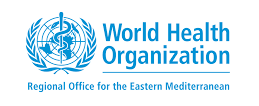Phytochemical Screening and Antibacterial Activity of Libyan Mentha Piperita L. and Mentha Spicata L. Leaves
DOI:
https://doi.org/10.69667/amj.25307Keywords:
Mentha Piperita L., Mentha Spicata L., Antibacterial Activity, Phytochemical Screening, Leaves.Abstract
Medicinal plants are widely used worldwide and play an important role in their bioactive compounds. The Lamiaceae family contains many genera of medicinal plants that are used in traditional medicine. Among them are Mentha piperita L. (peppermint) and Mentha spicata L. (spearmint). This study investigates the phytochemical composition and antibacterial activity of different solvent extracts of Libyan M. piperita and M. spicata leaves. Petroleum ether, ethyl acetate, and methanol were used to extract bioactive components from selected Mentha species. Phytochemical screening was performed by standard methods. Antibacterial efficacy was evaluated using the agar well diffusion method against four bacterial strains, Escherichia coli, Klebsiella pneumoniae, Pseudomonas aeruginosa, and Staphylococcus aureus. The Minimum Inhibitory Concentration (MIC) and Minimum Bactericidal Concentration (MBC) were determined using a macrodilution method. Phytochemical analysis confirmed the presence of alkaloids, flavonoids, phenolic compounds, and essential oils in both Mentha species. The antibacterial assay illustrated varying inhibition levels among bacterial strains, with the petroleum ether extract of M. piperita exhibiting the strongest effect against E. coli, while M. spicata showed moderate inhibition against E. coli and K. pneumoniae. The methanol extract of M. piperita shows a moderate antibacterial effect on E. coli, while a low effect for the same extract of M. spicata. Regarding S. aureus bacteria, M. spicata methanol extract and M. piperita ethyl acetate extract had moderate effects. MIC and MBC values indicated that M. spicata petroleum ether extract had the strongest effect against K. pneumoniae (MIC = 50 mg/ml), while M. piperita ethyl acetate extract had a significant impact on S. aureus (MIC = 50 mg/ml). The study concludes the medicinal significance of Libyan M. piperita and M. spicata in bacterial infection treatment. These findings support their potential as natural antibacterial agents












